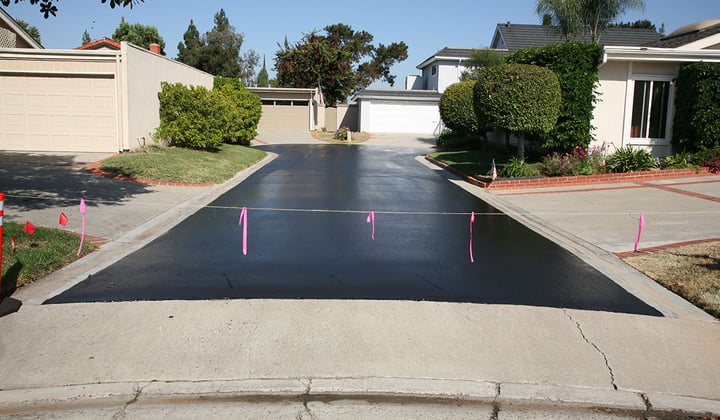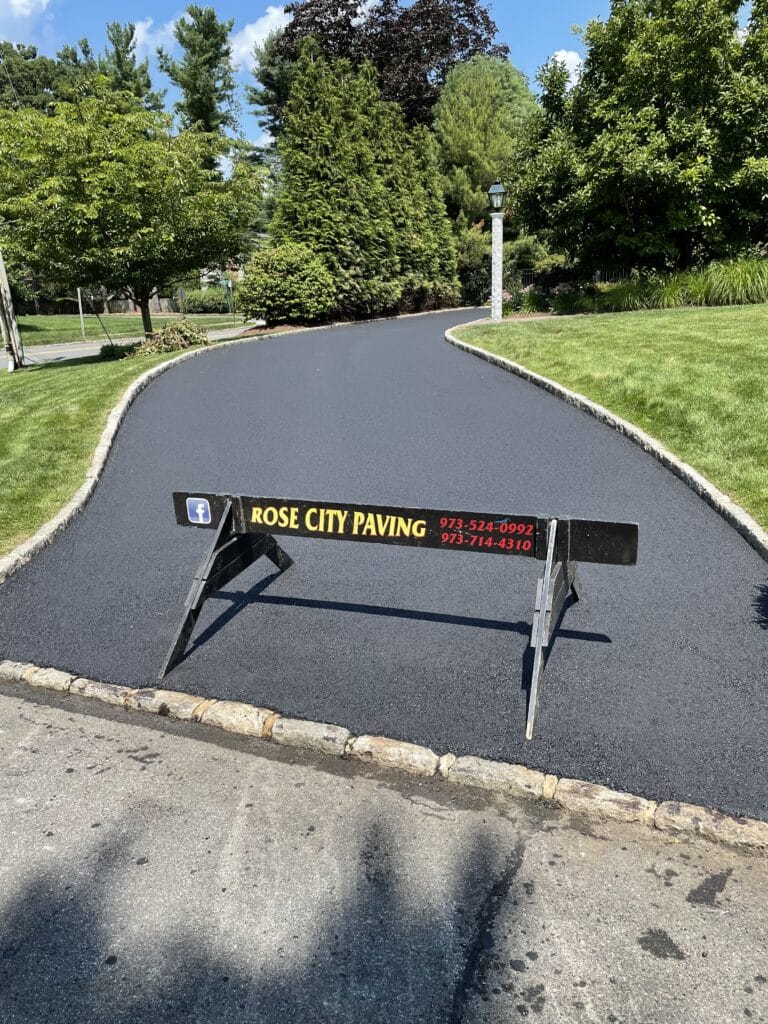Understanding Tilted Parking: How Asphalt Sealing Improves Commercial Lots
Understanding Tilted Parking: How Asphalt Sealing Improves Commercial Lots
Blog Article
Warm Mix Asphalt: A Lasting Option for Pavement
Hot Mix Asphalt (HMA) has actually arised as a leading sustainable option for pavement remedies, using a myriad of ingenious technologies and environmental benefits. Its capacity to reuse materials and minimize power usage presents an engaging situation for its fostering in roadway building and construction projects. The long-term efficiency and longevity of HMA make it a recommended choice for framework advancement. As the need for green building and construction practices grows, checking out the nuances of HMA's sustainability can provide useful understandings into the future of sidewalk solutions.
Environmental Advantages of Warm Mix Asphalt

In Addition, Warm Mix Asphalt assists to alleviate city heat island impacts. Its dark color takes in sunlight, minimizing the amount of warm mirrored back into the environment compared to lighter-colored sidewalks. This can lower ambient temperatures in city locations, decreasing the demand for a/c and eventually decreasing power intake.
In addition, Hot Mix Asphalt adds to boosted stormwater management. Its porous nature allows water to charge and infiltrate the pavement groundwater supplies, decreasing overflow and the risk of flooding. These environmental advantages make Hot Mix Asphalt a sustainable option for leading roadways and highways.
Power Effectiveness in HMA Manufacturing
Is power effectiveness an essential consider the production of Warm Mix Asphalt (HMA)? Absolutely. Power plays a substantial function in the production of HMA, impacting both expense and environmental sustainability. One crucial element of energy effectiveness in HMA manufacturing is using cozy mix asphalt (WMA) technologies (commercial parking lot paving). WMA enables the mixing and positioning of asphalt at lower temperatures contrasted to typical hot mix asphalt, resulting in minimized energy usage during manufacturing. This procedure not just lowers fuel use however likewise lowers greenhouse gas exhausts, making it an extra eco-friendly choice.
Moreover, improvements in plant modern technologies have brought about more energy-efficient HMA production processes. Modern plants are designed with attributes like recycled asphalt pavement (RAP) handling abilities, reliable heater systems, and improved insulation, all adding to power savings. By optimizing energy use in HMA manufacturing, the industry can decrease its carbon footprint while maintaining premium pavement products. Energy performance is, therefore, an essential factor to consider in guaranteeing the sustainability of Warm Mix Asphalt visit the website production.
Recyclability of Hot Mix Asphalt
The recyclability of Hot Mix Asphalt (HMA) is a critical facet of its sustainability and long-lasting environmental influence. HMA is just one of the most recycled products in the United States, with over 100 million lots of reclaimed asphalt sidewalk (RAP) being reused annually in new pavement building. Reusing HMA supplies several ecological advantages, such as reducing the demand for virgin materials, lowering energy intake during manufacturing, and decreasing the quantity of waste sent out to land fills.
The process of recycling HMA includes grating the existing pavement, squashing it into smaller pieces, and blending it with brand-new aggregate and asphalt binder to develop a recycled mix. This recycled mix can often do in addition to or even better than conventional HMA, while needing less raw materials and creating lower greenhouse gas exhausts. By including RAP right into new pavement jobs, roadway companies can conserve natural description deposits, minimize expenses, and lessen the environmental footprint of roadway building and construction and upkeep tasks. In general, the recyclability of HMA plays a significant function in promoting lasting practices within the pavement industry.

Long-Term Performance of HMA
Asphalt pavements show resilience and strength over an extensive duration, mirroring the lasting performance of Hot Mix Asphalt (HMA) Additionally, improvements in HMA modern technology, such as the usage of polymer-modified binders and cozy mix asphalt, have actually even more enhanced the resilience and longevity of HMA sidewalks. By prioritizing top quality building and construction and upkeep techniques, HMA continues to prove itself as a lasting and affordable option for durable sidewalk infrastructure.

HMA: Toughness and Sustainability
Demonstrating both longevity and sustainability, Hot Mix Asphalt (HMA) has actually come to be a keystone in the construction of long-lasting sidewalk frameworks - regrading. HMA's toughness stems from its capability to stand up to heavy loads, extreme climate condition, and high traffic volumes, making it a reliable selection for highways, freeways, and flight terminal paths. The structure of HMA, which commonly includes accumulations, binder, and filler, plays an important duty in improving its durability and resistance to damage
Additionally, HMA's sustainability exists in its recyclability and energy-efficient manufacturing procedure. The capacity to recycle reclaimed asphalt pavement (RAP) in brand-new HMA combinations decreases the demand for virgin products and lessens the environmental impact imp source of sidewalk building and construction and upkeep. Furthermore, the energy effectiveness of creating HMA hinges on its lower mixing temperature levels contrasted to various other sidewalk products, resulting in lowered energy usage and greenhouse gas exhausts.
Conclusion
In final thought, hot mix asphalt (HMA) provides a lasting service for pavement with its eco friendly qualities. HMA's recyclability, energy efficiency in production, and lasting sturdiness make it an environment-friendly choice for road building and construction.
HMA is one of the most recycled materials in the United States, with over 100 million heaps of redeemed asphalt sidewalk (RAP) being recycled every year in brand-new pavement building.The process of reusing HMA entails milling the existing pavement, squashing it into smaller pieces, and blending it with brand-new aggregate and asphalt binder to create a recycled mix.Asphalt pavements demonstrate durability and strength over a prolonged duration, reflecting the long-lasting efficiency of Warm Mix Asphalt (HMA) Additionally, improvements in HMA innovation, such as the use of polymer-modified binders and warm mix asphalt, have further boosted the sturdiness and durability of HMA pavements. The ability to reuse reclaimed asphalt pavement (RAP) in brand-new HMA mixes reduces the need for virgin materials and decreases the environmental influence of sidewalk construction and maintenance.
Report this page